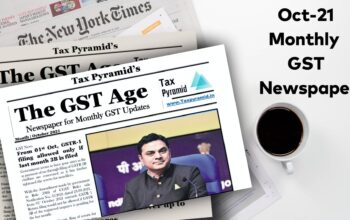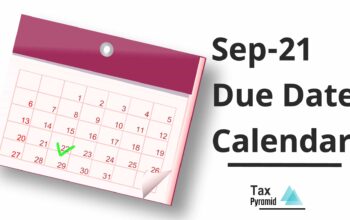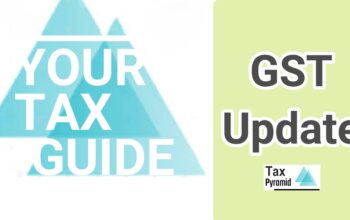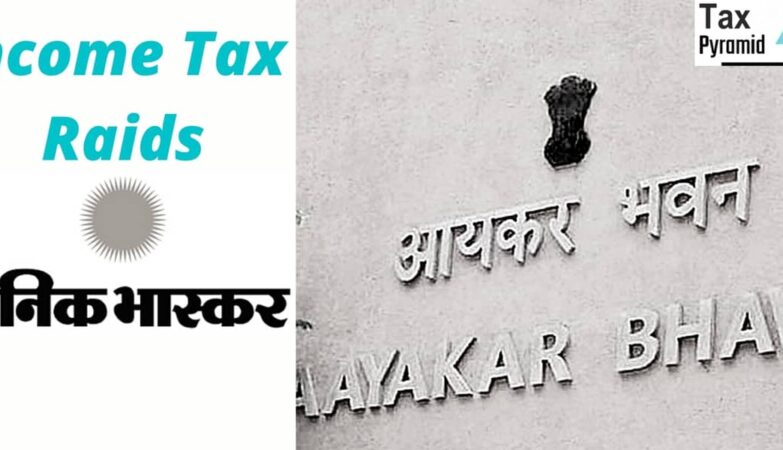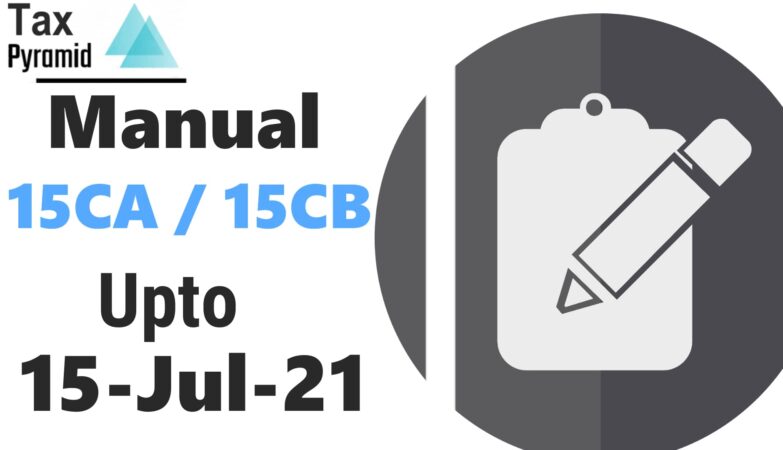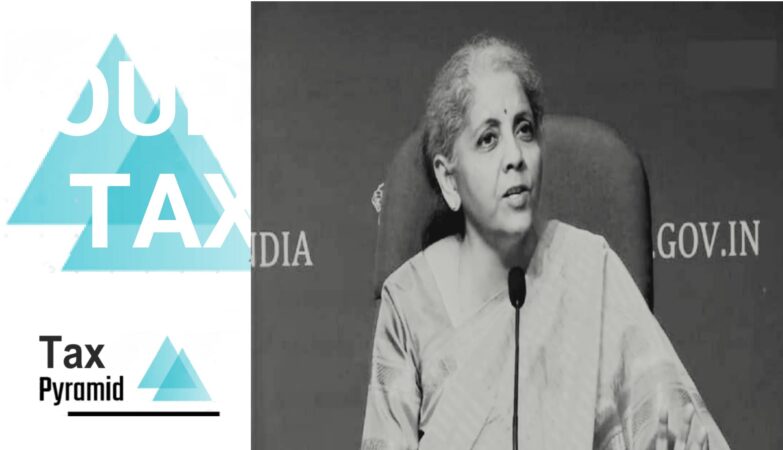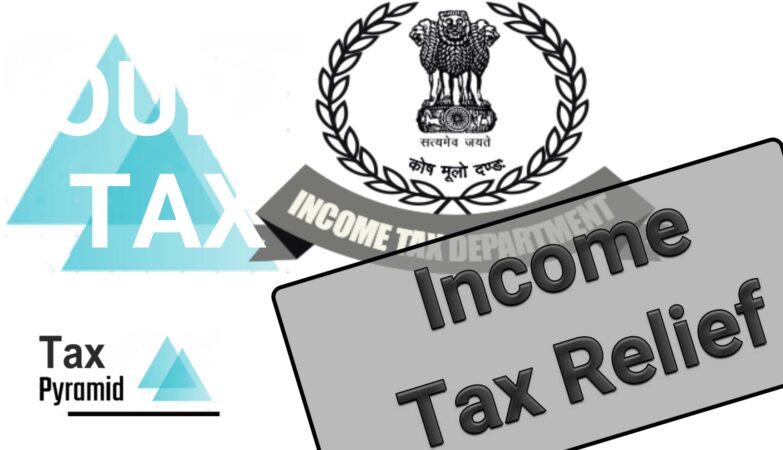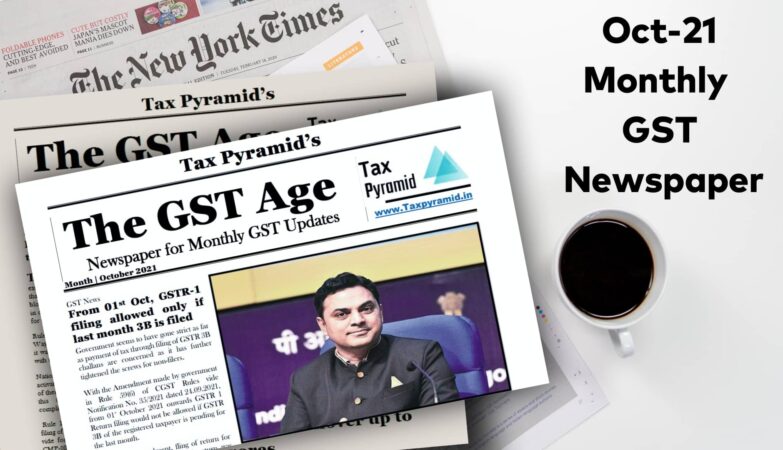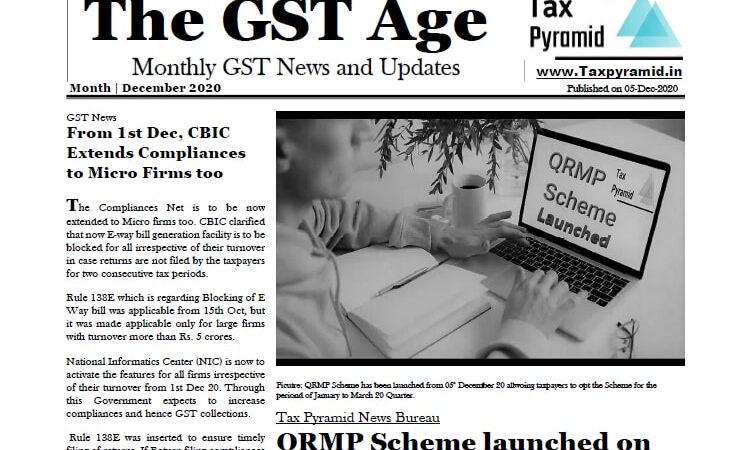Once the e-invoicing system is fully implemented, the government is planning to bid farewell to the GST system of monthly return filing. This will serve the dual purpose of reducing the compliance burden of GST on the general businessman at large and also check tax evasion.
Ajay Bhushan Pandey, finance secretary, said that GSTR 1 and GSTR 3B return filing requirement will eventually be eliminated when the electronic invoice (e-invoice) would be fully implemented.
This is being considered as an important step towards the government vision of “Ease of doing business” and would surely be a huge relief for the businesses.
Currently, GSTR 1 which is a return for outward supplies, and GSTR 3B for payment of taxes, are required to be filed on monthly basis making it to 24 returns for the year. In case the entity operating in more than one state and thereby registered in these multiple states then the number of returns increases further by 24 returns for each state registration. Therefore, if as per the government, the requirement to file monthly returns is done away with then this would amount to a massive reduction in compliances for GST registered persons.
For the registered taxpayers whose annual turnover is more than Rs. 500 crores, E-invoicing was made compulsory from 1st October 2020. E-invoicing has taken off quite smoothly and has given the government the required boost to go ahead with the implementation of further phases of e-invoicing.
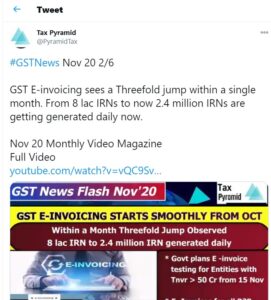
GST E-invoicing witnessed a threefold jump within a single month as from 8 lac IRNs (Invoice Reference Numbers) on 1st October to 2.4 million IRNs got generated on a daily basis as the October month came to an end.
CA Pradeep Panwar, Chairman of Meerut Branch of CIRC, ICAI says that going by the government vision, the success of the e-invoicing system could actually bring in the much-required and long-awaited simplification of the GST System as it would reduce the compliance burden of monthly return filing.
It’s in fact true that the main complaint right now by the practitioners and businessmen regarding GST is the number of compliances that a registered person is required to deal with. Just look at the number of returns a taxpayer needs to file. It acts rather as a discouraging factor for those evading GST registration who fear off these compliances more than anything else. Compliances not only increase the business cost for small businessmen but also demand time.
If this compliance burden and monthly return filing system is eliminated in the future, then we could see the real simplification of the GST system. We could see more people embracing the GST system and availing of its benefits.
On the other hand, e-invoices would halt the generation of fake invoices putting a lid on the GST frauds claiming fake ITC. The government can avoid tax evasion.
E-invoicing is being implemented in a phased manner with Phase I successfully accomplished. The next one would be starting from 01st Jan 2021 when the issue of E-invoice would be mandatory for those having annual turnover more than Rs. 100 crores. A notification has already been issued by CBIC in this regard on 10th November 2020. (N No. 88/2020 Central Tax )
The final phase would be from 01st April 2021, the start of the next financial year, when E-invoicing shall be mandatory for all B2B transactions.
CA Kalpak Kaplash


